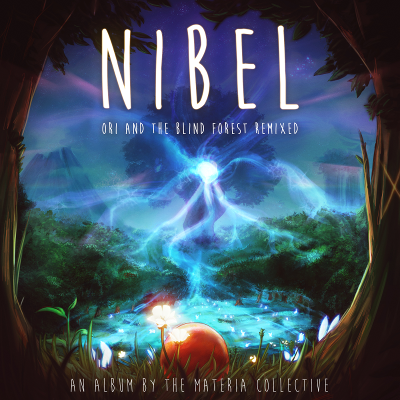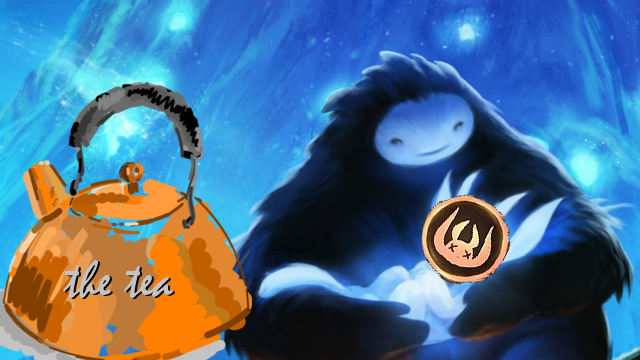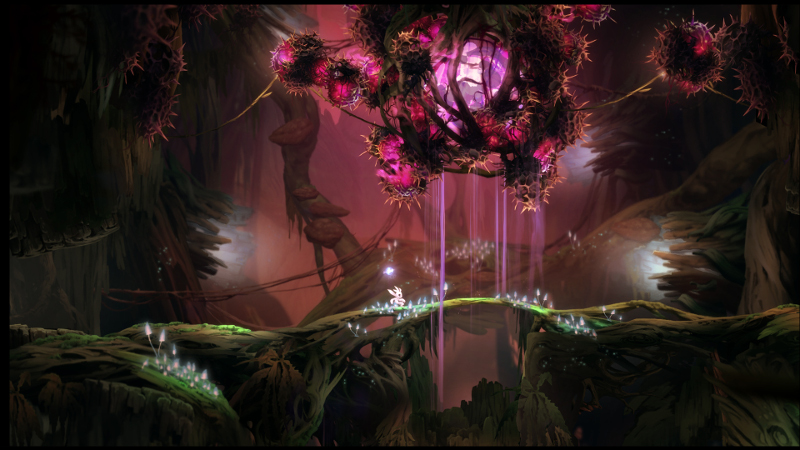In just over nine hours of Ori and the Blind Forest, I only died 551 times. The game very helpfully kept track for me and gave me a visual reminder every time I hit pause to catch my breath and/or cry.
To be honest, I didn’t really know what I was getting into with Ori, but it seemed like I had so little to lose back then: it was on sale, it was well-reviewed, and its graphics were gorgeous. Even if I had reservations about playing as anything remotely resembling a furry, I dove in. I thought it looked like a cute little game. I was so young then, so very naive.
I’d heard the term “Metroidvania” before. No, I had never played a game like it, but I knew that Samus was kick-ass in Super Smash Bros, and I’d watched the pilot of the Netflix Castlevania anime, so I thought I had a pretty solid background in the hybrid genre. Surely there would be no further prerequisites. I could do this. It was just a platformer, right? Something like Super Mario but for furries. (Oh wait, that’s already a thing.)
But was wrong. It was hard. It was SUPER HARD.
To be fair, it had been a while since I’d played what Waypoint Radio might refer to as a “video-game-ass video game,” if this even counted as one. For the past three years, I’ve been pretty busy — and pretty stressed — so I pretty much limited my video gaming to weekly jaunts through my heavily-hacked Animal Crossing: New Leaf town (aka, my happy place).
The pace of an Animal Crossing stroll is perhaps somewhat more leisurely than that of a Metroidvania platformer. That, and Animal Crossing has far fewer buttons to remember. Essentially, you hold a tool, you hit “A,” and it does the thing. In Ori, my left hand was constantly playing its own little game of Twister on the keyboard while my right hand swirled the large glass of wine I inevitably poured myself after dying in the Ginso Tree for what felt like the 300th time.
It was somewhere around the 150 mark that I switched the difficulty down the easy, but apparently, I needed “baby mode” because it took me another 20 minutes of fatalities to get through it.
A Piping Hot Take on Gameplay
It’s very possible that the wine didn’t help my already rusted reflexes, but in my defense, I was a little stressed, alright? Which is a shame, because the forest itself was breathtaking. When I wasn’t running, hopping, or gliding for my life, I couldn’t help but admire the sheer scope of the world I was tasked with saving.
The forest of Nibel was — and still is — gorgeous and sprawling, with vast contrasts between areas that somehow manage to be disparate but also part of a cohesive whole. It was a world I enjoyed inhabiting, no matter how hard it tried to kill me at every turn (hence the wine).
I’m pretty sure I spent all nine hours at the edge of my desk chair, checking and re-checking the edges of my screen for whatever ungodly disaster was about to chase me across the map next.
Speaking of which, the map itself is the true adversary in Ori and the Blind Forest. The enemies, all of whom could’ve been ripped out of an Epic Mickey demo, were fairly predictable, but that’s not so much a complaint as it is a blessing. If I’d have faced anything more complex from those dudes, me and my phosphorescent spirit guide would’ve told this forest to go f- …save itself.
The repetition gave me the practice I needed to master the game’s moves and eventually (read: FINALLY) start sewing them together for some really satisfying platform traversal. It was just around when Ori started feeling like an extension of myself and not like a dumb little fox puppet that I beat the game and deleted it from my desktop forever.
The Story: Quick as a Fox, Subtle as a Tsunami
Clearly, I’m not planning on replaying this one with my newly abundant free time, and despite how visually impressive the sequel promises to be, I’m just not invested enough in Nibel to take another trip through its thorny brambles.
The plot
It’s possible that I’m this heartless because when I watched Bambi as a child, my mother very pointedly told me exactly how she felt about the perceived demonization of hunters in children’s media. So when Bambi’s mom died (oh, crap, spoiler alert), my little brain was too full of rural Midwestern deer-culling discourse to develop empathy for woodland creatures caught on the wheels of the circle of life.
Sure, the relationship between Ori and Naru is sweet and (actual spoiler alert) it was sad when Naru seemed to starve to death at the end of happy-times-prologue-berry-season, but a bigger part of me was like, “Oh, thank God I don’t have to play as that giant sloth again.” (Although, yeah, about that…)
Besides a few twists and turns, the set-up here is pretty straightforward. You’re a fox-thing named Ori that’s supposed to restore the three elements (essentially: water, air, and fire, because screw the earth) and save the forest before an enormous owl kills you in retribution for the indirect part you played in ruining her life.
The owl, Kuro, is probably the most interesting character — a mother equal parts protective and vindictive — and definitely has the best character design, but that’s probably because you can’t mess up a giant demon owl. You just can’t. By comparison, the other characters come off a little clumsy. There’s something kind of bulbous about their designs and movements that makes it hard to imagine them outside the flat plane of a side-scroller.
Oh, and guiding you on your journey is a little pixie-thing called “Sein”, who takes you from one spirit grave to the next so you can absorb their sweet platforming powers in a move that doesn’t at all resemble necromancy.
There’s also some deeply earnest voiceover work from the Spirit Tree, which occasionally chimes in with a made-up gibberish language (and floaty, mystical subtitles) to say something fake-deep and almost embarrassing to read. The whole plot felt like it had me in an emotional chokehold, hitting me over the head again and again with just the hammiest sentimentality, begging me to care about the epic plight of its characters. And each time it did, I cared just a little less.
So long-story-short, it was a little hard for me to feel for Ori beyond the fact that every time I led its fragile fox body into another fatality, I felt a stab of guilt for being unable to complete even the most basic Metroidvanian maneuvers. Also because I’m pretty sure “forest guardians” are an endangered species. I should really be more responsible.
The Fandom Freak-Out: NIBEL
Luckily, the game undeniably succeeds in one area: the music. Looking back, it was the overwhelming praise for the OST that drew me to Ori in the first place. As the kids would say, I’m a slut for VGM, and composer Gareth Coker delivers the goods. While admittedly, the main theme isn’t my absolute fave (a little overwrought, in my opinion, and a total earworm in the worst way), it’s impressive how the rest of the album outshines what’s supposed to be the headliner. Each track feels carefully constructed, with soaring highs and somber lows that could tell a story on its own. Paired with the visuals, it’s an orchestral treat that brings Ori’s world to life.

Where Ori‘s narrative laid out its wide-cut arcs with hammy-fists, the orchestration drew out its nuance. I’ve been listening to Materia Collective’s NIBEL (see below) basically on a loop at work, and with each playthrough, I’m amazed at how Materia Collective takes an already intricate musical score and not only dives into it from every angle, but makes me want to take the plunge back into the Blind Forest myself.
While there’s a lot to love here (and a whole spectrum of reasons to love it), my favorite track has to be “The Waters Cleansed” by David Russell (a Materia Collective regular, and a core member of the Project Destati trio). While my feelings may be somewhat skewed by the intense relief I felt after clearing the Ginso Tree (very wine-drunk at two in the morning), I can say with certainty that I can imagine no better representation for Ori’s brand of hopefulness than Russell’s gorgeously delicate arrangement.
The Final Swallow
Am I glad I played Ori? Absolutely. It was a weird experience to be sure. Sometimes beautiful. Often infuriating. But always unique. It’s like a mosh pit! Not exactly my cup of tea, but something I’m glad to have experienced just once. And never again.
This week’s “Fandom Freak-Out” goes to Materia Collective’s NIBEL: Ori and the Blind Forest Remixed. It’s an impressive 37-track tribute to Coker’s work, featuring over 50 composers, arrangers, and artists.









Published: Jul 11, 2018 10:51 pm